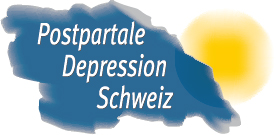Postpartum Depression Among Immigrants

All over the world, in every nation and country, people suffer from postpartum depression (PPD). Although it may be that in some regions of the world the incidence is lower or higher, it is widely cited in studies that on average, 15% of mothers and 10% of fathers are faced with this condition (Halbreich & Karkun, 2006; Paulson & Bazemore, 2010). We do not know exactly what causes depression but we do know that there are some risk factors; two of the key factors iare limited social support and recent life stress (O’Hara & Swain, 1996). This naturally makes immigrants one of the most vulnerable groups, and indeed research proves it. Depending on the study one reads, the prevalence of PPD among immigrants and refugees ranges from 20 - 42% (Collins et al., 2011; Falah-Hassani et al., 2015). Considering that immigrants constitute a quarter of the Swiss population , this is an enormous problem that needs to be addressed.
Immigration as a risk factor for depression
The moment a person becomes a parent is a new and potentially stressful situation. It is also the moment when we need support, maybe the most in our life - it is said that it “takes a village to raise a child.” We need not only practical support (e.g. sharing childcare duties) but also emotional (feeling of connectedness and belonging) and informational support (guidance and providing useful information). In this context, immigrant parents may experience isolation and loneliness as their support system may remain in their country of origin (Tobin et al., 2018). Being away from family and friends has become even more difficult in recent years due to travel restrictions related to the COVID-19 pandemic and unstable political situations in some regions.
Secondly, migration by itself is described as an extremely stressful process of adjustment. In the postpartum period the adjustment is even greater as immigrant parents go through both transitions at the same time - transition from “woman/man” to “mother/father” and transition from “local” to “immigrant” (Barclay and Kent, 1998). In other words, the level of stress they go through is potentially weightier particularly if they have lived in a new country for fewer than 2 years (Ganann et al., 2016).
Adapting to life in a new country can be difficult on many levels - there are language barriers, adapting to new value systems and lifestyles, minority status and marginalization, lack of knowledge about the legal and administrative systems (O’Mahony et al., 2013). Stress and worry can be further exacerbated by pending or uncertain residential status (Tobin et al., 2018).
It is also worth remembering that in many cases, depression already starts during pregnancy and here immigrant women suffer more often from antenatal depression compared to locals. A study conducted in Geneva with 228 immigrant women in the third trimester of pregnancy showed that 37% of them got a result on the Edinburgh Postpartum Depression Scale that may suggest depression (Ratcliff et al., 2015). Bearing in mind that untreated antenatal depression may result in obstetric complications, we should consider screening immigrant women for symptoms of depression already during their pregnancies.
We cannot forget about refugees who are a particularly vulnerable group among immigrants. We have to understand the myriad stressors they navigate - (1) they are becoming parents, (2) they have to adapt to a new country and experience far less support than they probably would at “home”, (3) additionally they have to deal with stress connected with previous experience. Traumatic events, difficult conditions during their journey to the new country, pending status as an asylum-seeker, and the awareness that the economic and political situation in their country of origin is still unstable or poses a threat to other members of their families/friends - all of this leads to an accumulation of stress (Bogic et al., 2015).
Barriers to seeking help
Immigrants are at higher risk of developing mental illnesses and we know that they seek help less often (Lindert et al., 2008). This is a big challenge as symptoms of PPD among this group are notoriously underreported (O'Mahony & Donnelly, 2013).
So why are immigrants less likely to ask for help? We need to consider two things - structural barriers and personal beliefs. Structural barriers include issues such as lack of knowledge of how the health system works (not knowing where to find a specialist, what kind of treatment is possible, how much the visits cost, etc.), language barriers (especially important considering regular therapy), childcare limitations (parents may have problems finding someone who will take care of their other child/children during the health appointments) or limited financial resources (O’Mahony et al., 2013).
Personal belief barriers are more complicated and based on parents' values, cultural norms, and background. We need to remember that in some cultures the stigma of mental health problems is more prominent. Parents may believe that if they ask for help they will bring shame to their family and community (Kirmayer et al., 2011). Some immigrants do not understand the concept of PPD or may not even have a word for PPD in their language (Tobin et al., 2018). Others fear losing their children to authorities. Some believe that specialists do not want to take immigrants as new patients (Edge & MacKian, 2010). Another misconception among certain immigrants is that they will have less of a chance of a change of status or immigration if they have a mental health diagnosis. All these beliefs may result in hiding their symptoms until they are unbearable - and we know well that early diagnosis is crucial to a less complicated treatment path.
I am an immigrant with PPD - where can I find help?
If you are an immigrant and you think that you may suffer from PPD, here you can find some tips on what you can do to receive help:
- On our website you can find the questionnaire the Edinburgh Postpartum Depression Scale in many different languages. Check if it is available in your mother tongue and answer the questions. It will not replace professional diagnosis but it is a good first step.
- Find a psychiatrist or psychotherapist. You may first try to look for a specialist who speaks in your mother tongue but do not give up if you do not find one. The other languages of therapy are indicated on our list of specialists. If you speak communicatively in another language (that does not necessarily mean that you speak “fluently” or “perfectly”) try to find someone who speaks in that language. If you are diagnosed with depression, your basic insurance will cover most of the cost associated with doctors’ visits and treatment (medication, etc.).
- Be aware that there are psychiatric hospitals in Switzerland which are specialized in treating PPD and where you can stay there together with your child. Find more on our list "Mother-Father-Child-Place" here.
- There are people in our association who speak different languages. Write to us or call us (e-mail: Diese E-Mail-Adresse ist vor Spambots geschützt! Zur Anzeige muss JavaScript eingeschaltet sein! tel. 044 720 25 55), and we will provide you with support and necessary information. We are waiting for you!
- Another place where you can look for help is Mütter und Väterberatung. This organization provides free support and helpful information about caring for your baby.
- Talk to your midwife. They are often a great source of information and will tell you where to find help in your area.
- Find a support group. We request an English speaking support group via zoom. If it is not available in the place where you live, look for online groups in your country of origin. Feeling that you are not alone with the problem is a crucial part of healing.
Author: Agata Siluszyk, active member of Postpartum Depression Switzerland
This article is also available in German.
«PPD bei Migrantinnen und Migranten»

 Facebook
Facebook Instagram
Instagram